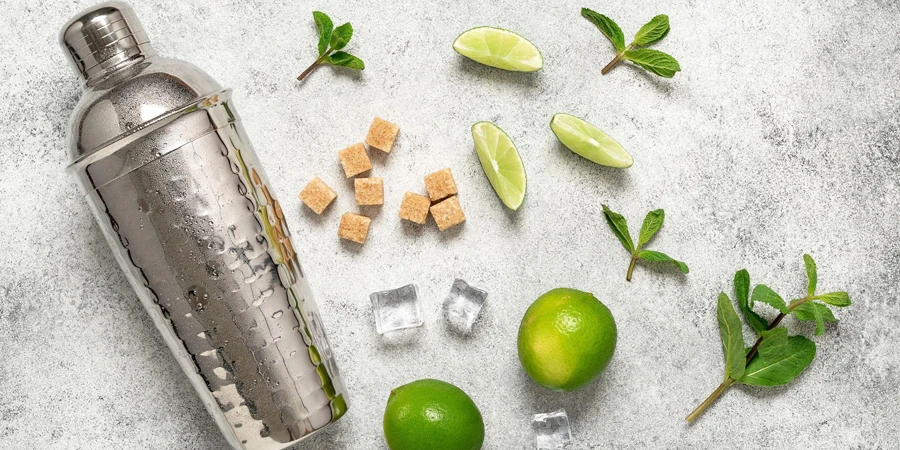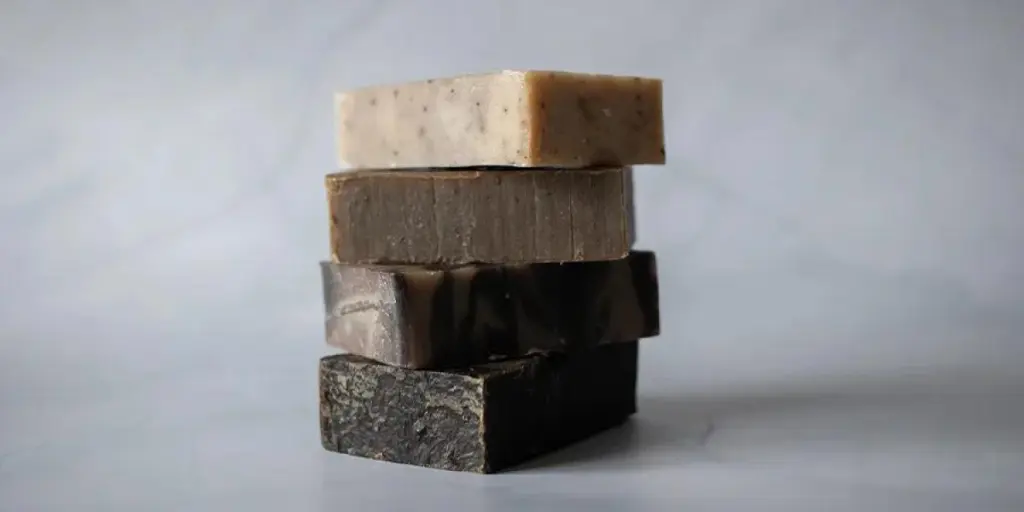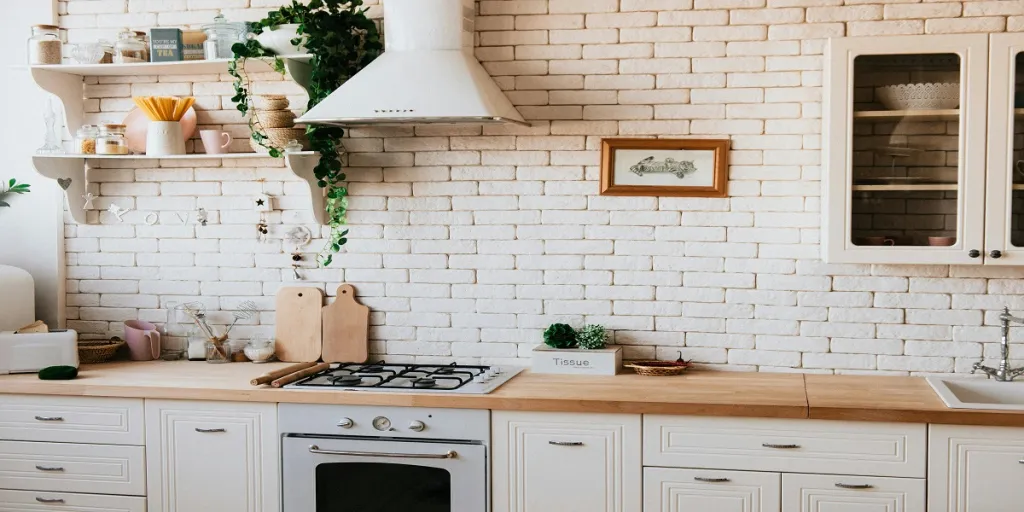In the fast-paced hospitality industry, selecting the right cocktail shakers is crucial for enhancing service efficiency and drink quality. These tools, vital to the art of mixology, influence everything from service speed to the final taste and presentation of drinks. Choosing the best models involves understanding their design, material, and compatibility with various cocktail recipes. With options ranging from Boston to cobbler and French shakers, industry leaders must assess each model’s unique advantages to best suit their service environments and clientele.
Table of Contents
1. Decoding cocktail shaker varieties
2. Insights into the 2024 cocktail shaker market
3. Key considerations in selecting the right cocktail shakers
4. Showcase of premier cocktail shaker models
Decoding cocktail shaker varieties

Cocktail shakers play a pivotal role in mixology, not just for mixing drinks but also for setting the standard of service and drink quality in the hospitality industry. They come in various styles, each with its distinctive features, benefits, and challenges. Understanding these can help enhance the preparation of diverse cocktails, tailoring the experience to the needs of clientele and the operational flow of establishments.
Styles unveiled: Boston, cobbler, and French shakers. Among the primary styles prevalent today, the Boston shaker is arguably the most popular in professional settings. It consists of two tins, or one glass and one tin, that fit into each other, forming a tight seal necessary for efficient shaking. Its durability and balance make it a preferred choice for high-volume bars, where quick, efficient drink preparation is paramount. However, it requires a bit more skill to master the perfect seal and shake, potentially increasing the learning curve for new staff.
The cobbler shaker, recognizable by its built-in strainer and cap, offers a more straightforward operation, making it ideal for less experienced bartenders or for use in home bars. Its ease of use comes at a cost, as it can be prone to sticking, making it difficult to open, especially when cold. Moreover, its strainer holes are often larger, sometimes allowing ice shards or herbs to slip into the prepared drink, which could compromise the drink’s texture and appearance.
Lastly, the French shaker, or Parisian shaker, strikes a middle ground between the Boston and cobbler shakers. It resembles the Boston but includes a cap, lacking a built-in strainer. It combines the aesthetic appeal of the cobbler with the practicality of the Boston, though it is less common than the other two types.
Functional excellence explored: The effectiveness of a cocktail shaker influences not only the texture and temperature of the drink but also the overall speed and flow of service. A well-designed shaker can enhance the incorporation, aeration, and chilling of ingredients, which are critical for drinks that require vigorous mixing such as those containing dairy, citrus, or egg whites.
For instance, a Boston shaker, with its larger volume and robust seal, allows for quick mixing of multi-ingredient cocktails, serving multiple patrons efficiently. Its design is conducive to both shaking and stirring, accommodating a broader range of cocktail recipes. This versatility is crucial for establishments that pride themselves on a diverse cocktail menu.
Conversely, the cobbler shaker, with its all-in-one design, reduces the need for additional tools, thereby minimizing setup and cleaning time, which can be beneficial in smaller or lower-volume settings. Its ease of use makes it an excellent tool for training new staff without the fear of spillage or improperly mixed drinks.
Each type of shaker has its place in the cocktail-making process, and the choice of shaker can significantly impact the functionality and efficiency of beverage service in hospitality environments. The key is to match the shaker’s capabilities with the establishment’s operational needs and the skills of its bartending team, ensuring a seamless and efficient service that meets the high standards expected in the industry.
Insights into the 2024 cocktail shaker market

The cocktail shaker market is experiencing a period of vibrant growth and transformation, driven by advancements in design and a shifting landscape of consumer preferences. As establishments and consumers alike seek to refine their mixology skills and presentation, the demand for innovative cocktail shakers is set to rise, influencing market dynamics significantly.
Innovations and evolutions: The current trend in cocktail shaker design leans heavily towards multifunctionality and aesthetic elegance, with manufacturers investing in technology to enhance both utility and visual appeal. Stainless steel remains the material of choice due to its durability and ease of cleaning, but new materials like silicone and advanced plastics are emerging to offer lightweight and customizable options. These materials make it easier to handle and less prone to condensation issues, making them ideal for high-volume settings where quick, repetitive use is common.
Technological advancements have also introduced features such as integrated measuring tools and improved seal mechanisms, which prevent spillage and ensure more precise ingredient mixing. These innovations not only enhance the functionality of cocktail shakers but also cater to the growing consumer interest in crafting professional-grade cocktails at home.
Consumer demand dynamics: Market analysis reveals a significant shift in consumer preferences, emphasizing quality and performance over mere aesthetics. This shift is partly due to the increased interest in home bartending, spurred by recent global events that have encouraged more people to recreate professional experiences in a home setting. As a result, there is an increasing demand for cocktail shakers that are both easy to use for beginners and sophisticated enough for experienced mixologists.
Furthermore, the market is seeing a greater appreciation for custom-designed and bespoke shakers, which are often sought after by enthusiasts looking to personalize their barware. This demand for customization is also reflected in the commercial sector, where establishments are branding their mixology tools to enhance brand visibility and customer experience.
These market insights indicate that the cocktail shaker industry must continue to evolve, balancing innovation with practicality to meet the diverse needs of today’s consumers and businesses. As preferences continue to shift towards more dynamic and versatile bar tools, the market is expected to expand further, providing ample opportunities for new product development and market entry.
Key considerations in selecting the right cocktail shakers

Selecting the optimal cocktail shaker involves a deep understanding of the materials and design features that affect a shaker’s functionality, durability, and integration with other bar tools. Each aspect plays a crucial role in ensuring seamless bar operations and can significantly impact the overall efficiency and quality of service in hospitality settings.
Material matters: durability and design. The choice of material for cocktail shakers not only dictates their longevity but also affects their operational efficiency and aesthetic appeal. Stainless steel, known for its robustness and resistance to corrosion, is the most common choice among professionals. For example, high-grade 304 stainless steel is celebrated for its durability and ease of maintenance, making it ideal for busy venues that require frequent use of these tools.
In contrast, glass shakers provide visual appeal and allow bartenders and guests to see the cocktail as it mixes, which enhances the guest experience. However, glass is more fragile and can be impractical in high-volume settings due to its propensity to break. Metal options like copper are appreciated for their thermal conductivity, which can chill cocktails rapidly, but they require more maintenance to prevent tarnish and are generally more costly.
Plastic shakers offer a lightweight and often cost-effective alternative, suitable for casual or outdoor settings. They are less durable and may absorb odors and stains over time, which could compromise the taste of beverages.
Usability and maintenance: Ease of use is paramount in selecting a cocktail shaker. Features such as an ergonomic design can significantly reduce hand fatigue and increase efficiency during peak service hours. For instance, shakers with a rounded rim and smooth interior facilitate easier pouring and reduce the risk of spillage, ensuring a cleaner bar space and quicker service.
The maintenance of cocktail shakers is also crucial, especially in environments where speed and hygiene are paramount. Shakers that are dishwasher-safe and feature fewer crevices reduce the time and effort needed for cleaning. Silicone or rubber seals can enhance the functionality of shakers by preventing leaks but should be designed to withstand frequent use and cleaning without degrading.
Tool compatibility check: The compatibility of a cocktail shaker with existing bar tools can drastically affect the fluidity of bar operations. A shaker that fits well with various sizes of jiggers, strainers, and mixing glasses can streamline the workflow, making it easier for staff to prepare drinks quickly and consistently. For example, a Boston shaker that can accommodate different sizes of mixing glasses or can be used interchangeably with another tin increases its utility, allowing bartenders to mix multiple drinks or batch cocktails efficiently.
Additionally, the aesthetic coherence of a shaker with other bar tools can enhance the visual presentation of the bar, contributing to a venue’s overall atmosphere and guest experience. A well-matched set of tools not only looks professional but also signals to guests that the establishment values quality and consistency in every aspect of service.
Showcase of premier cocktail shaker models

As the demands of bartenders evolve and the sophistication of cocktail craft increases, the choice of a cocktail shaker becomes crucial. Here are five standout models from three categories, each exemplifying the pinnacle of design, functionality, and style.
Best of Boston: top performers
- Cocktail Kingdom Leopold Weighted Shaking Tin Set: Esteemed for its superb construction and balance, this set is a favorite among professionals for its durability and the ease with which it forms a tight seal. Its weighted design enhances control during shaking, making it a staple in high-volume settings. The 28-ounce capacity is ideal for crafting multiple drinks at once, and the stainless steel material ensures longevity and ease of maintenance.
- True Advance Boston Set of Stainless Steel Shaker Tins: Known for its robust seal and intuitive use, this set stands out in professional and home settings alike. The stainless steel build offers a clean and quick pour, crucial for efficient service, and its impact resistance ensures it can survive the occasional drop, underscoring its suitability for bustling bar environments.
Cobbler shakers: function meets style
- Tablecraft Cobbler Shaker: Combining elegance with functionality, this shaker features a built-in strainer and a cap that doubles as a measuring tool. Its glass body allows for visual appreciation of the cocktail mixing process, making it not only a tool but also part of the show. This model is particularly appreciated for its user-friendly design, making it ideal for those new to cocktail making.
- BruMate Cocktail Shaker: This model redefines convenience with its dual functionality as a cocktail shaker and a pint glass. It features BruMate’s BevGuard technology to keep drinks chilled without a metallic aftertaste, and its secure BevLock lid prevents leaks, ensuring a mess-free environment. Its sleek design and practicality make it a favored choice for both personal and professional use.
French elegance: latest innovations.
- Elevated Cocktail Shaker: This shaker merges modern aesthetics with classic functionality. It boasts a double-walled insulation that maintains drink temperature and a built-in measurement system for precision. The substantial weight provides better control, and the silicone gaskets enhance the sealing, making the shaking process both efficient and stylish. Perfect for those who value precision in their cocktail crafting, this shaker is a testament to innovation in traditional bar tools.
Each of these models demonstrates exceptional craftsmanship and innovation, catering to the varied needs of today’s bartenders and cocktail enthusiasts. Whether it is the robustness and practicality of the Boston shakers, the elegance and functionality of the Cobbler shakers, or the refined innovations of the French shakers, these tools are essential for anyone serious about the art of mixology.

Conclusion
The selection of cocktail shakers is a critical decision that shapes not only the efficiency of bar operations but also the quality of beverages served. As demonstrated through various models from Boston to French shakers, each type offers unique advantages tailored to different bar environments and personal preferences. Looking forward, the industry will likely continue to innovate, integrating more advanced materials and designs to enhance both functionality and aesthetic appeal, ensuring that professionals can keep pace with evolving consumer tastes and service expectations.




